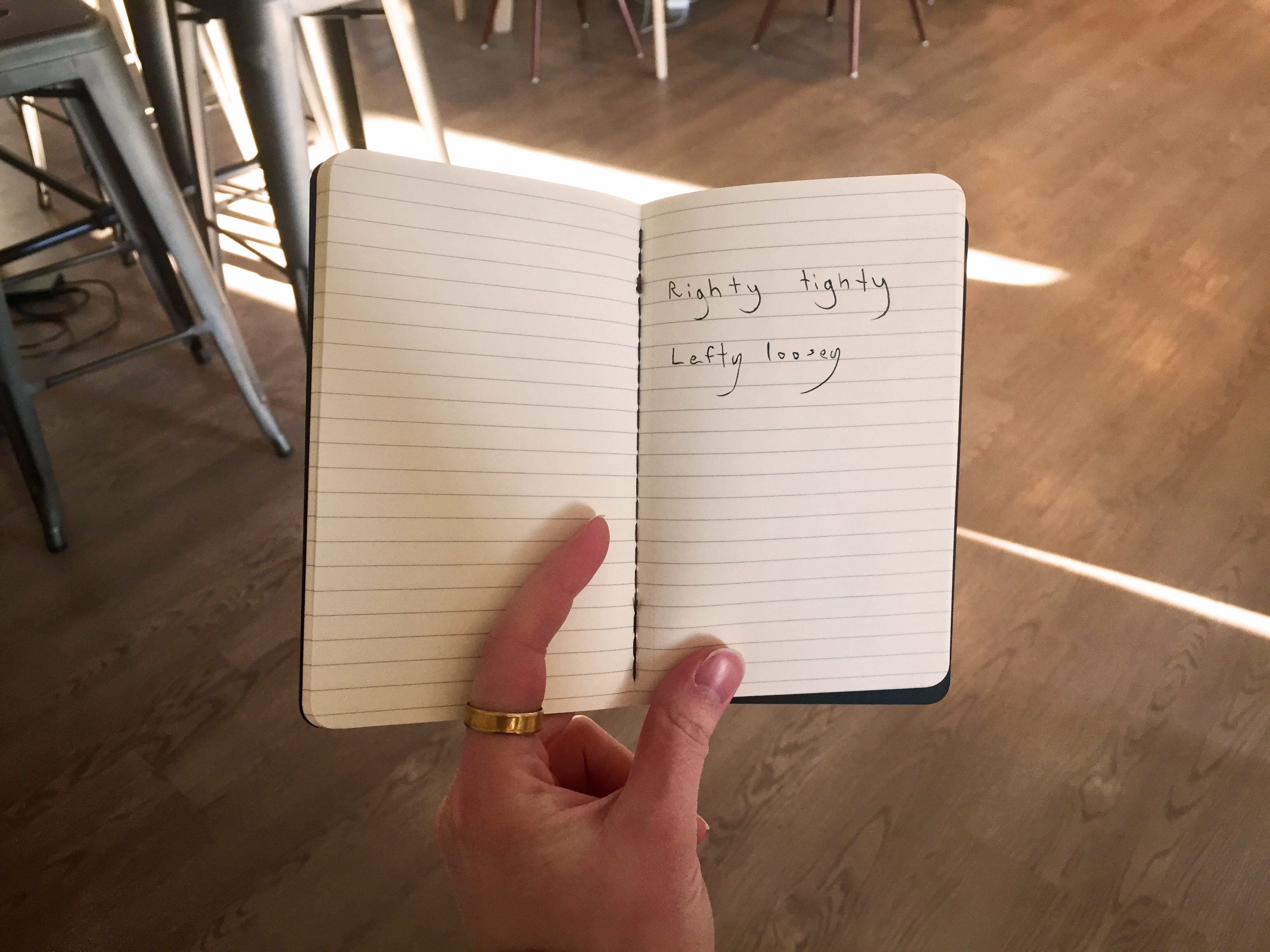In a quest for productivity, I was crazy enough to teach myself to write left-handed.
 Photo Courtesy of ngad
Photo Courtesy of ngad
I?m a righty all the way, I?m not ambidextrous. But when I was a teenager, I taught myself to write left-handed so I could write more.
My right hand was developing carpal tunnel rapidly and I wanted to be as productive as humanly possible with my writing. Unfortunately, I couldn?t do that with just one hand. I wanted to steal away any moment in the day I could to write, to create more literature, and to improve my skills more rapidly.
Thus, I decided to teach myself to write lefty.
One of my closest friends in Malaysia, who was a lefty by nature, told me about how her teachers would beat her hands when she tried to write lefty. It broke my heart and she told me about how much she struggled to learn to write with her non-dominant right hand. I was horrified that the teachers would get physical with students over something as simple as what hand someone wrote with.
Regardless, since I did know her story, I was certain that I?d be able to teach myself to write left-handed. Though I learned about the possibility in a dark way, I was curious to try.
At first, I couldn?t write letters legibly.
It took an incredible amount of brainpower to create letters. Every single letter felt like I was drawing something that took thought and precision to get right.
When I started writing left-handed, I thought I?d just be figuring out how to make my lefty writing neat.
There are so many letters where the pen strokes are completely different when you?re using your other hand. Take the lower case ?e,? for example. With my right hand, I?d typically start with the straight line then do the curl. With my left hand, I kept trying to start from the bottom, loop around, then connect the line to make it an ?e.?
Figuring out the proper spacing between letters and words was shockingly difficult.
If I can do that unconsciously right, I should be able to do it lefty, right?
Wrong.
I would be trying to write perfectly common words, words I?ve written thousands of times, but I had to mentally check in with where spaces between letters and words would go.
It felt like being in kindergarten again; almost nothing easily translated over to lefty.
I thought this endeavor would be an incredible virtue to writing constantly, but it took a lot more work than I expected until I was able to really benefit from it.
Once my writing was legible, it was extremely slow.
 Photo Courtesy of OrnaW
Photo Courtesy of OrnaW
After several months of switching hands and training my left hand, my writing was legible, but it was dramatically slower than my righty writing. (Yes, you heard me, my righty writing.)
My writing handed writing was at least twice the speed of my left-handed writing. While this slowness wasn?t too detrimental for creative writing on the go, when it came to taking notes in class, my left hand generally could not keep up.
I started this journey rather early in high school, but it wasn?t until college when my left hand could compare to my right in terms of speed. I do think that handwriting can actually help your writing process, but it definitely comes at a physical toll.
I also discovered all the frustrating things about being a lefty.
As my right hand descended deeper into carpal tunnel, I would go into my classes planning to take all my notes lefty. While doing carpal tunnel exercises helped, I definitely recommend doing them to others, it wasn?t quite enough for me to stay pain-free and able to write large volumes of academic work and personal fiction.
Your typical classroom will have one, maybe two lefty desks. If you?re really lucky, maybe three.
Will they be in places where you want to sit? Probably not.
As a front-row frontierswoman, I always wanted to be in the front row. There were admittedly a few times when I would get to class extra early to do a little desk reorganization. No one ever noticed and I never got in any trouble, but this was just another of those thoroughly unexpected inconveniences.
This might have just been psychological, but even just writing in a standard notebook seemed more inconvenient as a lefty. Leaning on the spiral with my right hand was more comfortable than leaning on the spiral with my left hand when I was filling lines to the margin.
Interestingly, my handwriting in each hand never became quite identical.
 Oh, hello, this is my hand.
Oh, hello, this is my hand.
It?s a bit sloppier and a bit smaller when I write lefty, even after years of practice. The sloppiness makes sense, but I?m rather intrigued that it always ends up being smaller.
What do you think? Does it look like the same person wrote both lines?
What do I have to show for it?
This might seem like a letdown for this tale of triumphing over the seemingly impossible, but I?ve actually shelved most of the manuscripts I worked on in high school. When I asked myself if I should edit, rewrite, or shelf those dusty old novels, a lot of them were just too amateur for me to keep bothering with.
But that?s okay.
I gained a lot of experience. If I hadn?t written those terrible stories as a high school student, I?d be writing them as a college student or a post-grad.
I was able to accelerate my growth by writing more. It took writing left-handed to do it, but I did it, and I don?t regret it.
Switching hands always surprises people.
One fun bonus ? I?ve had a lot of amusing conversations with professors and colleagues when they see me switch from writing with my right hand to my left without skipping a beat.
One of my supervisors once joked that they should be paying me ?twice as much? since I could do ?twice the work? because I was writing with my left hand while sealing envelopes with my right. No such raise happened, but it?s still a fun memory.
 Photo Courtesy of Kittiphan
Photo Courtesy of Kittiphan
Most people who see me switching think that I really was just born ambidextrous. They have no idea what I went through to be able to write ceaselessly, even when one hand?s stamina fails.
But that?s also okay.
If someone asks, I?ll tell them the real story, but it?s alright if they make assumptions without knowing the real upward climb it took. In the end, learning this unusual skill allowed me to write more, to be more productive, and that was my goal.


